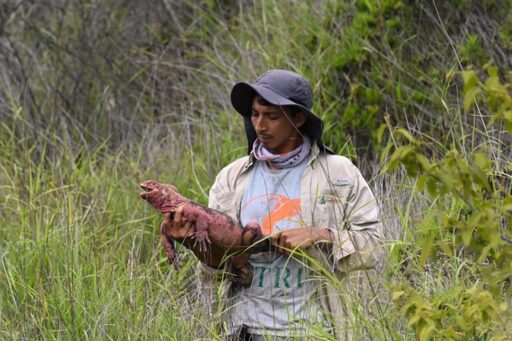At least 60 wild iguanas have been captured, sold and exported from the Galápagos Islands in Ecuador under permits that shouldn’t have been recognized since Ecuador doesn’t allow the export of live iguanas, Mongabay’s Ana Cristina Alvarado reported. Researchers behind a recent study found that traffickers smuggle the iguanas out of the archipelago, then declare the reptiles were captive-bred in a middle country such as Mali or Uganda — even though experts say there are no legal facilities there to breed Galápagos iguanas for export. From these third-party countries, smugglers ship the animals under captive-bred permits to customers in North America, Asia and Europe for tens of thousands of dollars each. “They are sought after because they’re unique species,” study co-author Christian Sevilla, a director at Galápagos National Park, told Alvarado. There are four iguana species endemic to the Galápagos Islands, meaning they don’t exist in the wild anywhere else in the world. The pink land iguana (Conolophus marthae) is listed as critically endangered, with an estimated 300 individuals living on Isabela Island. “If someone removes 10 pink iguanas, the impact on the population would be large. We are talking about a significant percentage of the population,” said biologist Washington Tapia, one of the study’s authors. The marine iguana (Amblyrhynchus cristatus) is the only species of iguana that spends most of its time underwater, mostly foraging for algae. The other two are the yellow land iguana (C. subcristatus) and the Santa Fe land iguana (C. pallidus). All three are listed…This article was originally published on Mongabay
From Conservation news via this RSS feed


